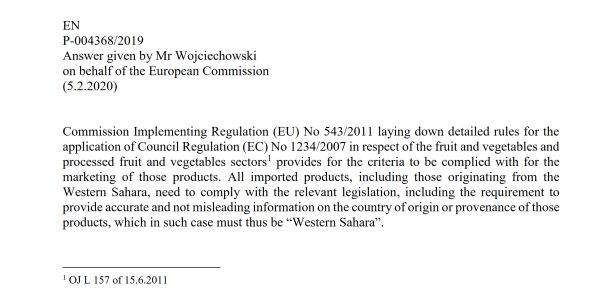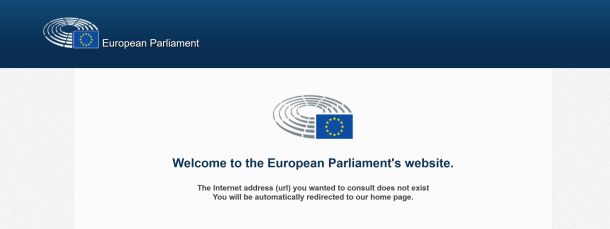In today's plenary session, 369 MEPs voted in favour, 225 against and 31 abstained on an agreement that will allow more Moroccan products to enter the EU market.
The new trade regime for agricultural and fisheries products provides for an almost total liberalisation for most products, but contains volume restrictions or tariff quotas for a list of products which are considered "sensitive" to the European Union. These specific conditions apply to tomatoes, cucumbers, strawberries, tangerines, garlic, zucchini and sugar.
The agreement fails, however, to specify that production of Western Sahara must be excluded. In its recent report "Conflict Tomatoes", WSRW identified 11 farms in the vicinity of Dakhla, in the south of Western Sahara. All are owned by either French-Moroccan conglomerates or the king of Morocco. These illegal agricultural sites could now be put in competition with the European Union's own producers.
For months, agricultural organisations from the south of Europe have expressed their opposition to the deal. Morocco presents a tough competitor for them, not having to comply with the same environmental and labour standards as the European farmers.
Sharing these concerns, a significant minority of MEPs refused to consent to the deal. Opponents also cited the inclusion of Western Sahara in the agreement as being in violation of international law.
Morocco occupied Western Sahara in 1975, and severely suppresses the Saharawi people who ask for their right to self-determination be respected. More than 100 UN resolutions call for the right to self-determination for the people of Western Sahara - but Morocco continues to thwart the exercise thereof.
The agreement will not enter into force before 1 May.
EU Commission backtracks on labelling Western Sahara goods
What is EU's position on labelling of products from occupied Western Sahara? The EU Commission has now for the third time published a response to a parliamentary question on the matter, but the latest version fails to address the question.
Why does this EU statement keep disappearing?
A clarification by the EU Commission on labelling of products from Western Sahara was published, then removed, then published again and has now been removed again from EU websites.
EU reaffirms: Western Sahara products to be labelled as such
Two weeks ago, the EU Commission announced that products from Western Sahara should be labelled accordingly, only to withdraw that statement the very next day. Today, the Commission reaffirms its original position.
Spectacular backtracking by EU Commission on Western Sahara labelling
On 5 February 2020, the EU Commission announced that products from Western Sahara should be labelled accordingly. But about 24 hours later, all traces to that statement had been removed from EU websites.



